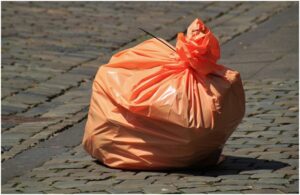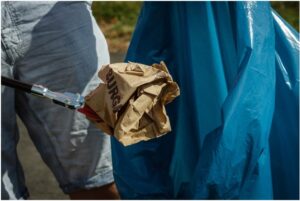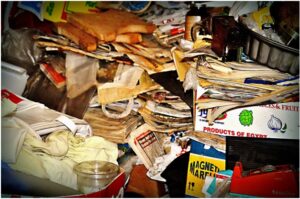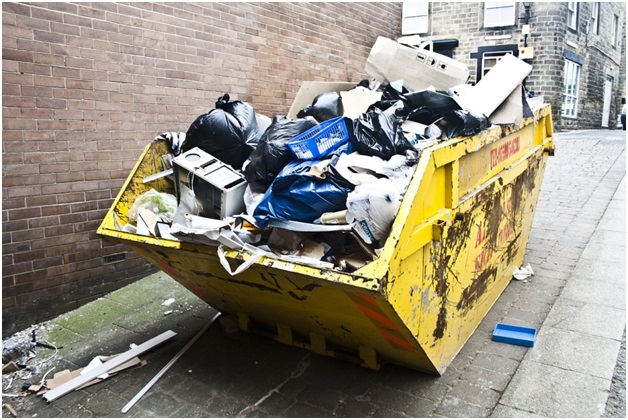Australians generate vast quantities of waste, much of which was sent overseas for recycling before China implemented strict waste import restrictions. Now, however, Australia’s waste policies have been adjusted accordingly and this focus will now change accordingly.
Waste policies are the responsibility of state and territory governments, with the Commonwealth negotiating intergovernmental agreements for consistent results. While this is beneficial, it also highlights areas for improvement when it comes to governance. If you’re new to Australia, read the following article for more information.
What Is It?
Junk collection in Australia refers to the practice of collecting garbage or rubbish from homes and businesses, typically through a professional junk removal company. Some such firms specialize in specific waste streams like electronics recycling or trash from construction sites while others provide an array of services including clearing hoarded situations or donating usable items to charity.
Junk can be detrimental to both humans and the environment when left to accumulate on streets or dumped into natural spaces, polluting air and water resources that harm humans and animals alike. One effective strategy for minimizing junk is recycling as much as possible while purchasing only necessary products; you could also limit single-use plastic bag usage while selecting items with minimal packaging requirements.
Australians produce paper and cardboard waste on an everyday basis, which can be easily recycled through curbside programs, or you can purchase products made with recycled content. When searching for recycled papers to use, be sure to look for ones certified by the Environmental Management Certification Scheme to ensure it was produced using eco-friendly methods which help the environment begin to heal from what we’re doing to it.
The National Waste Report is issued every two years and provides an overview of waste generation, management and recovery rates in the U.S. it tracks progress towards meeting National Waste Targets; some targets have seen improvements, while others remain unchanged or have worsened over time.

Why Do We Need It?
An efficient rubbish collection system is critical to Australia’s waste management systems, helping reduce landfill-bound trash while making better use of natural resources and improving our economy through job opportunities in recycling industries. But everyone must play their part – including being educated on which bins can and cannot accept specific items and how to sort their rubbish properly.
Australia produced 21.6 million tons of waste during 2009-10 (ABS). That’s an enormous amount! To put things into context, one ton is roughly equivalent to filling one small truck load full. These figures should encourage us all to recycle more and explore various waste management solutions.
As well as general rubbish, there are other types of waste that can be recycled such as paper, cardboard, plastics and metals. Recyclable products include packaging material like cardboard and plastics can also be turned into new packaging products like furniture and flooring or even biogas production for energy generation or fertilizer application – in fact some countries have even managed to completely avoid landfill usage by diverting a majority of their generated waste towards recycling systems instead.
However, some waste cannot be recycled or reused and this is where landfill comes in. Landfills serve to store unwanted material until decomposition takes place and turns to soil; this serves to segregate rubbish from its surroundings and prevent pollution of the surrounding environment.
Recently, landfills have come under increasing fire for their health and environmental impacts. This is because much of the garbage stored therein contains potentially toxic substances like dioxins and heavy metals – these compounds can have lasting impacts on ecosystems as well as harm human health. Luckily, landfills can now serve dual roles by being transformed into treatment plants to minimize these adverse environmental impacts.
Environmental impact is one of the main concerns of everyday household waste, and packaging can be an especially significant problem. To protect the planet, it is vital that consumers only buy recyclable products; otherwise try purchasing items in bulk to reduce packaging waste. You can return plastic bags at major supermarkets for recycling purposes as well as rolling up aluminum foil for recycling – it won’t harm our planet as long as it’s in a ball!
What Do We Do With It?
While the diversion rate from landfill has improved over time, most of Australia’s unwanted rubbish still ends up there resulting in serious environmental impacts including toxic waste polluting soil, air and water; methane gas emissions as it decomposes; as well as loss of precious land.
To reduce these impacts, it is crucial that we reduce garbage generation and increase recycling rates. One effective strategy for doing this is opting for products made of recyclable materials over single-use plastics.
Using paper and cloth shopping bags rather than plastic ones when shopping or using aluminum foil instead of cling wrap or plastic bags; as well as donating or selling unwanted furniture items through Same-Day Rubbish Removal which could make an impactful statement about our environmental awareness while simultaneously saving you money!
Australia provides hard rubbish collection through curbside recycling programs. However, for larger amounts it may be beneficial to hire professional rubbish collectors, like https://ridlyrubbishremoval.com.au/, who boast licensed trucks, insurance and trained employees who will arrive with their crew on your scheduled day or time to remove all of your unwanted junk and leave the area looking spotless.
Reducing garbage requires sorting your rubbish into separate bins for plastics, metals, cardboard and paper recycling. Some items cannot be put in general rubbish bins such as electronic waste (e-waste). Common places for disposing e-waste include council transfer stations and stores such as Harvey Norman or Officeworks.
Donating unwanted items to charity is another excellent way of giving back while feeling great about you. Just ensure that any donated items are in good condition and clean before giving them away; otherwise they could end up in landfill.
There are even companies that can provide easier ways to reduce garbage by booking several types of rubbish pick-up service to ensure that your unwanted items are collected in an eco-friendly and responsible manner.

How Do We Dispose Of It?
When it comes to disposal, there are various options available. While some methods are straightforward and effortless, others might require additional efforts and planning. No matter which route you take, make sure that it is done safely – if unsure, contact your local council or hire a rubbish removal service for guidance.
Many cities in Australia provide various kinds of waste bins. Each has a specific color to indicate what kind of rubbish it can hold; this helps ensure you do not throw away items in error. In general, red waste bins are for hard rubbish while yellow ones hold paper and plastic debris, green bins collect organic waste while blue bins hold glass or metals.
Australia pays close attention to environmental and resource concerns. Therefore, they have implemented various policies designed to encourage solid waste recycling (which you can learn about here). Unfortunately, their full impact has yet to be fully examined.
Policies designed to decrease landfill volumes also help lower greenhouse gas emissions. By employing anaerobic digestion – which involves breaking down organic waste to produce methane gas that can then be used as fuel for electricity production or even used as biogas or fertilizer production – methane can be converted into fuel for electricity generation, biogas production or fertilizer creation.
Another advantage of this system is that it can save taxpayers significant sums of money by eliminating costly waste management options and allocating those resources towards more worthwhile public initiatives.
These systems not only promote recycling but have additional advantages. For instance, they help increase the efficiency of city’s waste collection services and help prevent littering in natural landscapes; garbage can lead to health issues for both animals and people, detracting from calming and relaxing feelings brought on by viewing clean surroundings.
When it comes to rubbish removal, you have many options at your disposal. From private collectors and council pickup services, to self-dumping your refuse at the local landfill. But before making a choice between any of them, be aware of their respective costs and handling capacities – some only accept general household trash while others specialize in various forms of waste; also some offer same day pickup while others provide ongoing waste removal. This article can help you decide the one that suits your needs best.
Rubbish removal is an indispensable service for both households and businesses yet can often become burdensome when faced with large quantities of junk to dispose of. This is particularly true during renovation projects or estate clearance services requiring large volumes of rubbish removal, necessitating professional assistance to manage it for you.
In such situations, professional rubbish removal companies may be needed – in which case we will explore some options available to Australian residents for efficient waste removal which include the list following the image below.

Council Rubbish Collection
If you reside in a residential area, your council likely offers rubbish collection on a fortnightly basis. This service can help take care of household junk such as old furniture, green waste and white goods like washing machines; although this type of disposal can often be affordable. Note however, this does not cover large or bulky items like sheds and patios which may need disposal separately.
Skip Bins
These are an increasingly popular way to remove rubbish from homes and businesses alike, offering convenience by being delivered right to your location and collected when full. Most skip bin waste is recycled; therefore this option can also be environmentally-friendly; just be sure when hiring one that you find out exactly which materials it accepts for recycling before proceeding with a booking agreement.
Private Collectors
Australia boasts several private rubbish removal services that offer services at various price points and methods of collection; their methods and prices may differ widely depending on which service you opt for; some charge by cubic meter while others by weight or bag. Companies like Ridly provide same-day rubbish collection in Sydney and Melbourne and even collect hazardous materials that would otherwise be difficult to dispose of.
DIY
Doing it you can be costly and inconvenient, while dry recyclables such as paper and plastic don’t always return into circulation worldwide. Therefore, the optimal option would be partnering with a rubbish removal service that offers both disposal and recycling.



